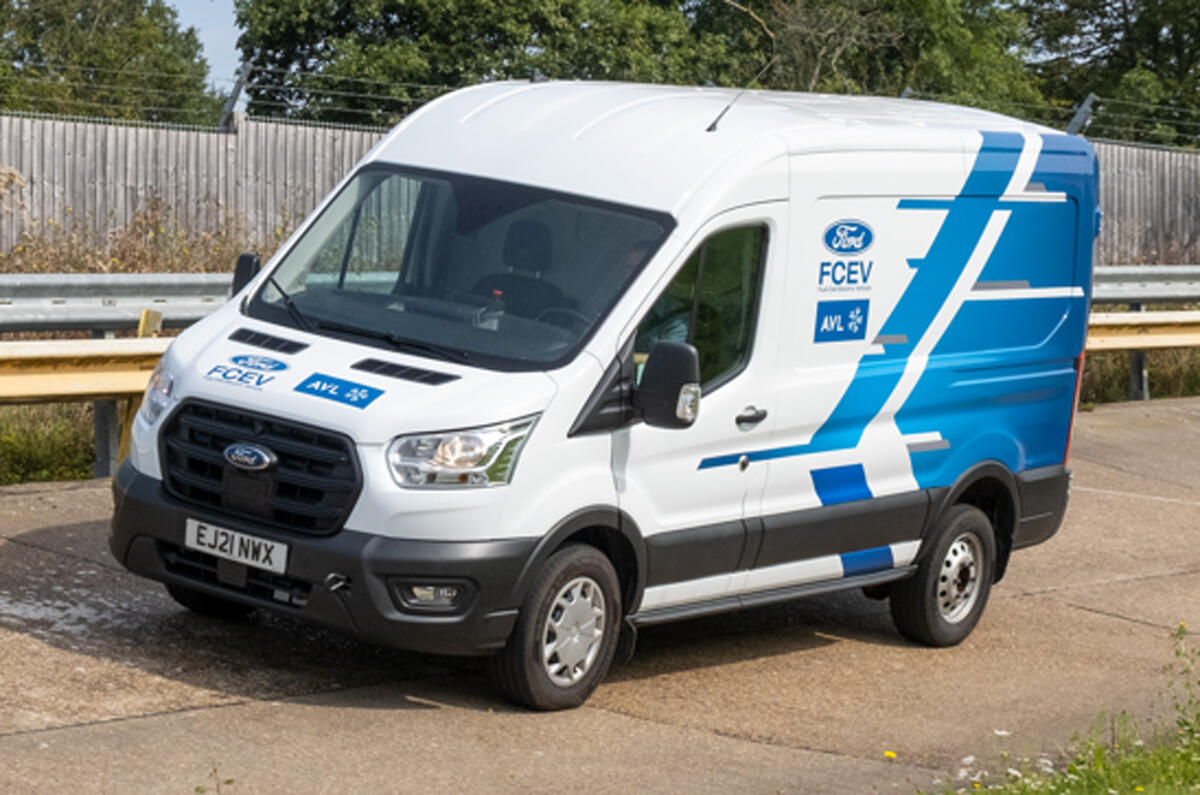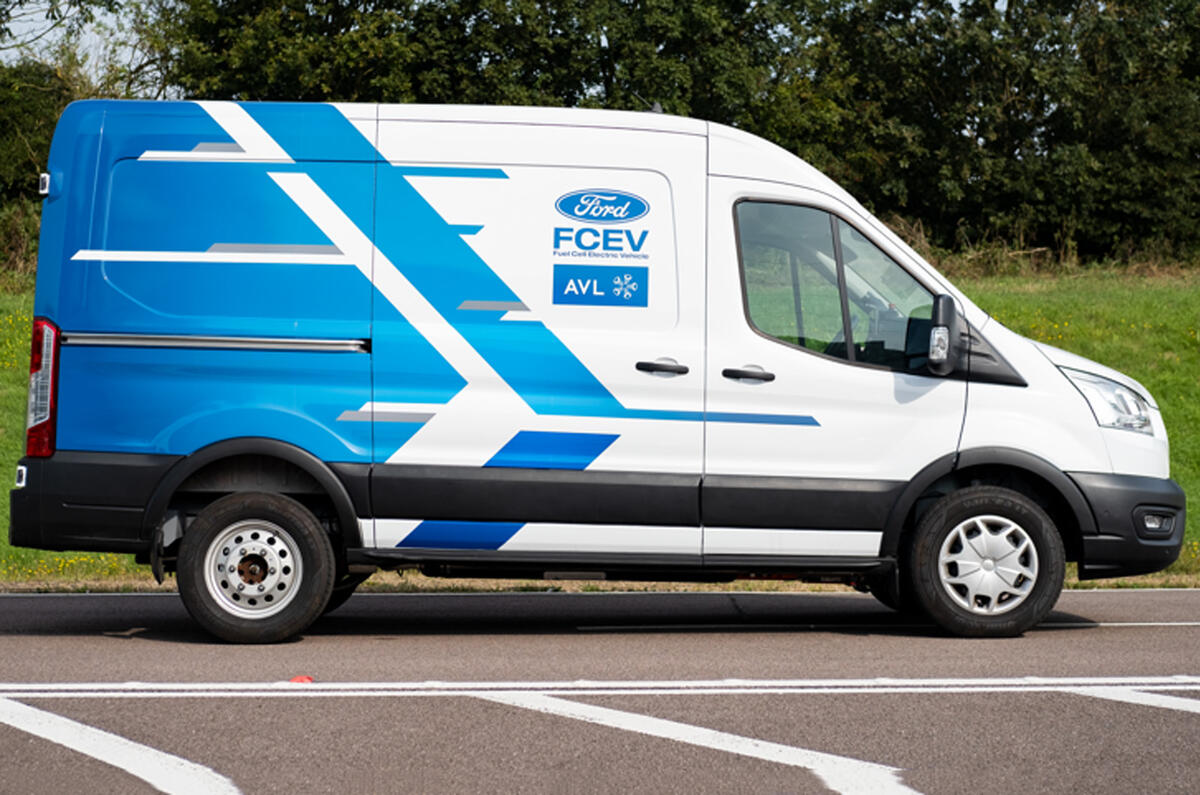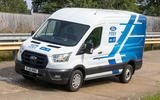Ford has teamed up with powertrain testing specialist AVL to build a fully functioning Transit FCEV prototype, which it will use to research the suitability of hydrogen powertrains in the commercial vehicle sector.
Partly funded by the government-backed Advanced Propulsion Centre, the project aims to improve knowledge, engineering and integration of the technology.
The powertrain uses a modularised fuel cell system approach and replaces the battery of the Transit BEV (upon which it's based) with a smaller unit. A proton-exchange membrane (PEM) fuel-cell system has been installed and the production BEV's electric motors remain.
Ford explained to Autocar the reasoning behind the project: "Compared to a conventional BEV product, the Transit FCEV research vehicle offers enhanced capabilities to enhance customer productivity, including refilling time akin to conventional powertrains, whilst still delivering zero emissions.
"This project is a step to deeper insights into the commercial viability of a fuel-cell systems for possible wider deployment and also gaining further understanding of customer usage challenges for route‐to‐market."
AVL echoed Ford's priorties, saying: “For partners and the general UK supply chain, the project will increase knowhow and technical capability in the areas of fuel-cell-vehicle engineering and integration.
“The tools and technical knowledge acquired during the project will be used for the next phases of fuel-cell research and to inform partners about the commercial viability of potential products and services."
AVL said the project will also investigate the requirements to make a commercial FCEV feasible, including the varying demands of different “customer use-cases”.
Other key areas the project will explore includes analysing the benefits of FCEV systems, including range, fast refilling and payload capacities, compared with BEV for high-payload usage in the light-duty commercial vehicle sector.
The new Transit BEV will go on sale in the UK in spring 2022, with a 217-mile range and in up to 25 different sizes, weights and body variants.
READ MORE
New electric Ford E-Transit revealed with 217-mile range








Join the debate
Add your comment
98% of hydrogen made today is so called "brown hydrogen" made by steam reforming of methane which is a process which produces carbon dioxide. Compressing, cooling and transporting the hydrogen to point of use is also a horribly inefficient process. FCEV are not the solution to decarbonising road transport.
There's only at the moment eleven places where you can re-fuel a hydrogen vehicle, so, not exactly viable in most of the country just yet.